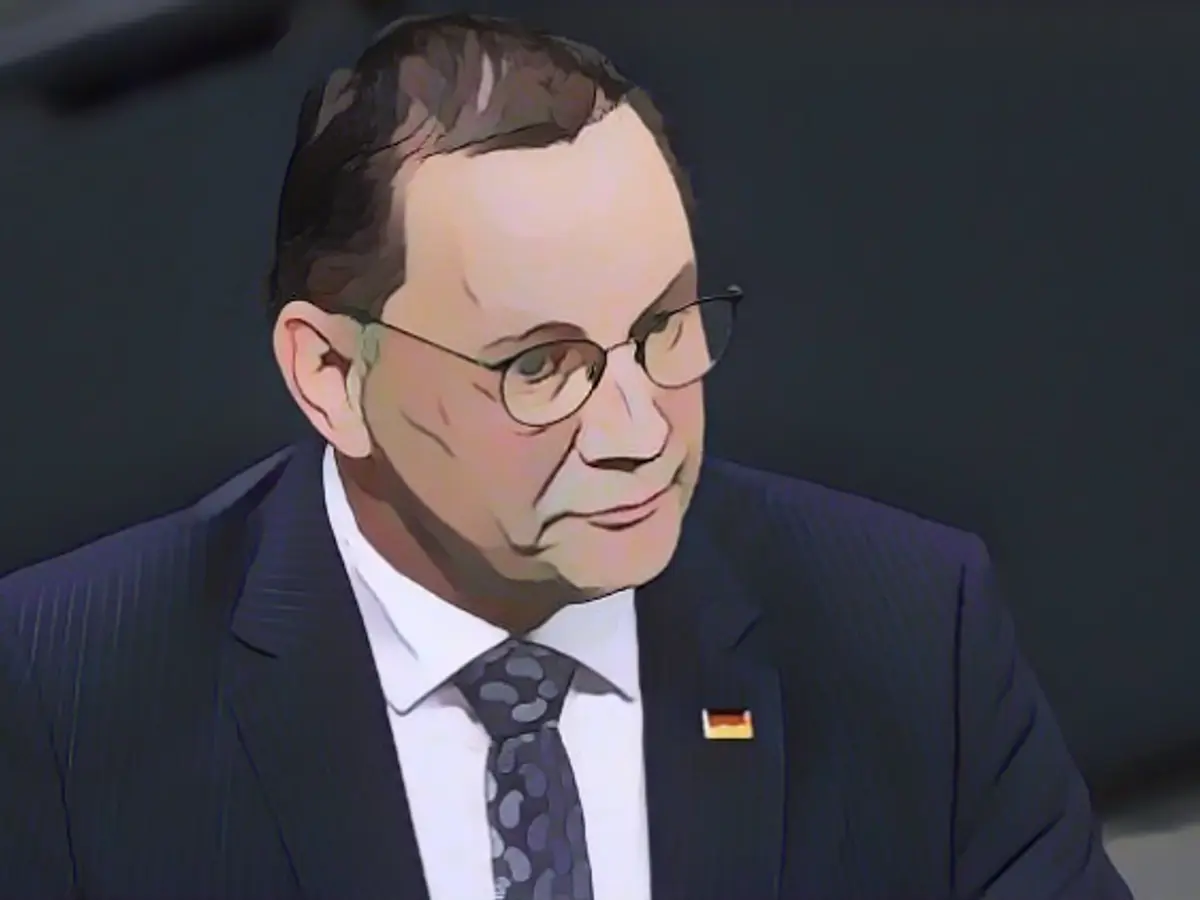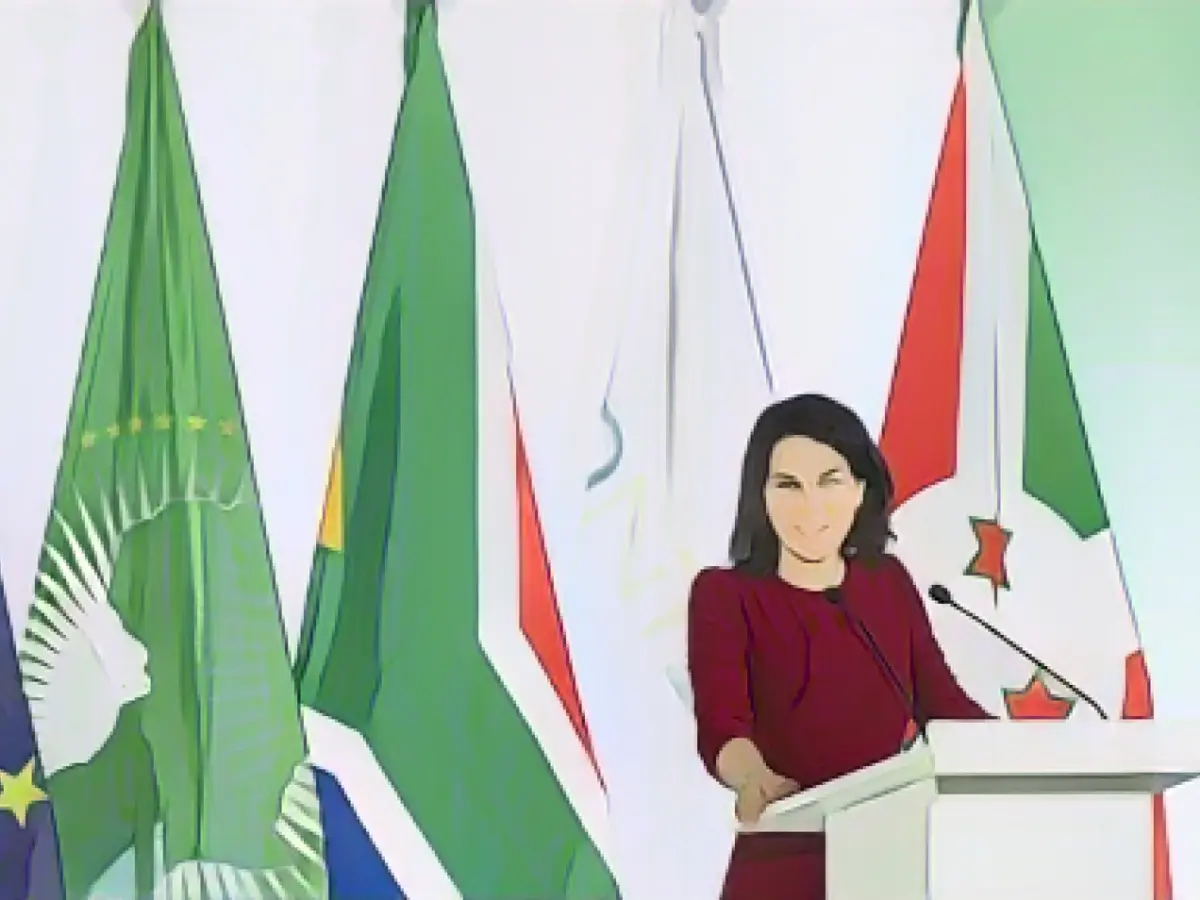Time's a-tickin': Federal Budget Agreement's Final Hours
Every tick of the clock echoes a growing sense of urgency in the chambers of power. Germany's traffic light government, an alliance of SPD, Greens, and FDP, faces a daunting challenge: plugging a billion-euro hole in the budget. The deadline approaches swiftly — if a resolution isn't reached within a few hours, approving the budget for 2024 remains an insurmountable chore.
Germany's top trio — Chancellor Olaf Scholz (SPD), Finance Minister Christian Lindner (FDP), and Vice-Chancellor Robert Habeck (Greens) — are pulling out all the stops, according to Annalena Baerbock, Foreign Minister (Greens), who dances around the question of having key data available prior to the cabinet meeting.
A burning victim of the Federal Constitutional Court’s ruling three weeks ago, the German government grapples with a €17 billion deficit in next year's budget. The high court invalidated a €60 billion loan approval originally earmarked for climate protection and economic modernization. The audacious judges declared that the federal government may not repurpose emergency loans for use in later years.
Since then, the coalition partners are engaged in a fierce budget battle, debating where funds may still be allocated, where cuts should be made, and whether the problem might be solved through additional loans. The uncertainty pervading the economy and social sectors is immense, with concern growing as to funding programmes and promised funds’ fates.
Baerbock warns of big trouble ahead: "It's crucial at a time of cascading crises that strong democracies prove they can act with maximum force, even in a crisis." Anything from a breakthrough to a full-blown government crisis is still within the realm of possibility.
Possible Scenarios:
Option A: Tight Budgetary Belt-Tightening
Hardliner within FDP, Lindner, prioritizes extreme fiscal austerity, targeting social issues, citizens' income, international aid, and unnamed support programs. The proposed cut to citizens' income increases due to inflation is met with stern opposition from the SPD’s Hubertus Heil, who refuses to deny those affected crucial income adjustments. FDP policies face constant rejection from both SPD and Greens. The consensual coalition government seems unlikely to scrape together enough small-scale savings projects, and abandoning large prestige projects would put the government in a precarious position.
Option B: Emergency Loan Bailout
SPD and the Greens advocate for suspending the debt brake (German constitutional deficit limit) in 2024, enabling additional loan authorization, and clearing the budget deficit. Yet, Lindner and the FDP clings to doubt, concerned about potentially facing legal challenges by the CDU/CSU. Experts flag this option as risky, highlighting the growing requirements for emergency budgets to be declared, and question whether financing would become a regular government issue.
Option C: Coalition Egos Collide
Habeck's advisors warn of mounting financial pressure due to demographic ageing and the urgent need to invest in digitalization and climate-friendly restructuring. But with disagreements over spending priorities between the coalition partners, a bitter pill approach will likely emerge, where each side makes concessions in critical areas, such as direct support payments for Ukraine or basic child insurance.
The Guns of December are Loaded
The coalition government aims to seal the budget deal before New Year's Eve, with the potential for political ramifications if they fail to do so. This urgent situation has heightened internal disagreements, with possible outcomes varying from a coalition collapse to a year-long provisional budget.
Sources:
- "bundeskanzler-in-wulegge-2.jpg" by Frontline (CC BY-SA 4.0) via Wikimedia Commons.
- "Deutschland hat die höchste Staatsschuld in Europa (lebensgroß)" by chausset - Flickr: Deutschland hat die höchste Staatsschuld in Europa (lebensgroß) (CC BY-SA 2.0) via Wikimedia Commons
Enrichment data:
The Federal Constitutional Court's ruling on November 15, 2023, declared the Second Supplementary Budget Act 2021 unconstitutional and invalidated a €60 billion credit authorization. This decision significantly affected Germany's budget management and fiscal flexibility. The citizens' income increase due to inflation is a contentious issue, with Opposition party, CDU/CSU, and the FDP pushing for reconsideration, causing further division within the governing coalition.








